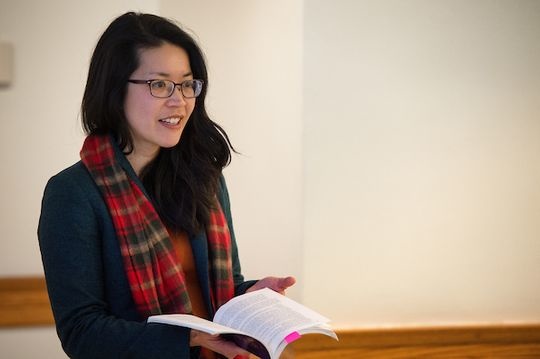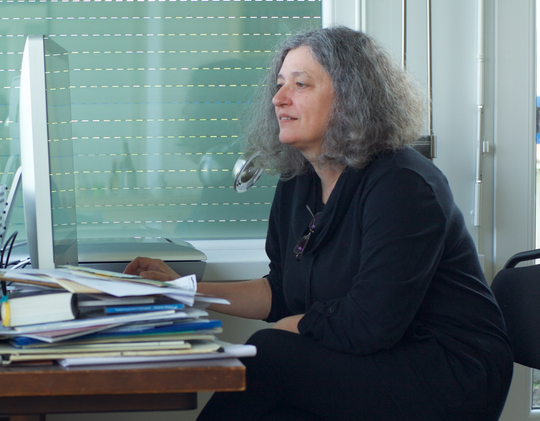
Adrienne Rose teaches Translation and Global Society class in Schaeffer Hall (Photo: Justin A. Torner, Justin Torner - Staff Photographer - The University of Iowa)

Sabine Golz (Photo: Contributed photo)
By Sabine Golz and Adrienne Rose, Guest Opinion, The Press Citizen
How often do you wonder not if, but how to read a sentence, text, or a whole book? Have you been in situations where someone read something in a completely different way than you did? Where you could not agree on what it “actually said?”
In moments like these, decisions are made that decide what counts as “real.” They are also often moments when alternative ways of seeing the world evaporate because a more accepted and more probable reading wields more social and symbolic power. Default readings win out not because they are better, stronger, or more interesting, but because they are more average. We tend to assume that meaning is contained in texts, and we neglect the imagination, creativity, and re-visionary freedom we exercise when we actively make sense.
In the age of Big Data, we hear that we should hand over literature to computers and algorithms since they are incomparably faster at sifting through vast literary databases than we are. They can process more text than we will be able to read in our whole lifetimes, and they can find patterns in those databases that span centuries.